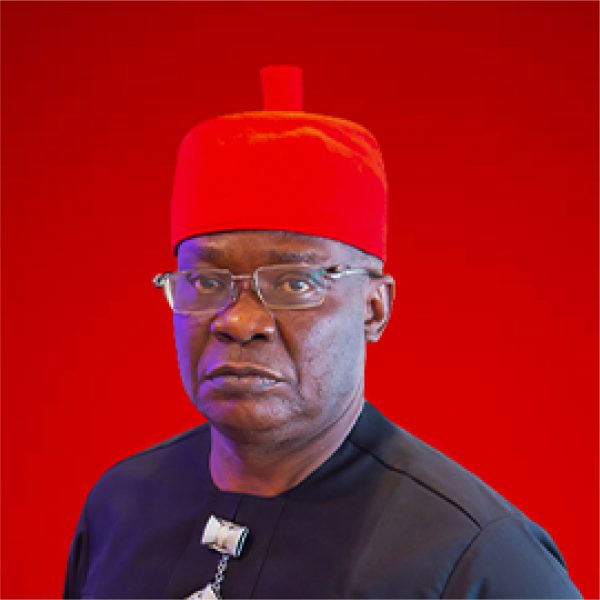Ezenwa Nwagwu is the convener of the Say No Campaign, a citizen’s movement against impunity and corruption. He is also Executive Director of Peering Advocacy and Advancement center in Africa (PAACA). In this interview, he speaks on the need for reforms that instill transparency in the oil and gas sector.
What is your impression so far on the economic situation in the country, how do you think we can improve transparency in the oil sector and reduce instances of corruption?
Everyone in Nigeria understands the current hardship being faced in the country and the need to improve transparency in all sectors so we can generate more revenue. Despite repeated attempts to diversify the economy, oil remains the biggest contributor to Nigeria’s economic growth. And once there is absence of transparency in that sector, it affects government revenue and public spending. This is why in my opinion, we must pay attention to reforms being initiated by regulatory agencies in the oil sector like Nigerian Upstream Petroleum Regulatory Commission (NUPRC). Some of these reforms have been tailored towards transparency in hydrocarbon accounting, enhancing oil and gas production and curbing leakages. There has been tremendous progress as per reforms, but more work needs to be done. Plugging the loopholes in Nigeria’s oil production value chain will not be a walk in the park; it will involve a grimy and slow slog through policy and execution pathways. Solving complex problems is never easy, no matter how pleasant the outcomes. My take, however, is that there has to be accountability, not just in the oil sector but in every aspect of government. With improved transparency in the oil and gas sector, the country gets more revenue, which will translate to the provision of basic services to teeming Nigerians. So we have to continue to challenge the regulators to adopt measures that would tackle challenges facing the oil and gas sector and raise the country’s oil production capacity.
There has been controversy over the role of NUPRC under its current leadership and the award of oil field. What is your opinion on this?
I’m of the view that, as social critics, we must criticise when there is need to and we must commend when we have to. In my opinion, we are seeing some level of improvement in transparency and accountability in the oil and gas sector. I have followed the claims and counter claims surrounding the allocation of oil fields. However, while not trying to defend anyone, it is public knowledge that as at the time the current leadership assumed at NUPRC, the 2020 marginal field bid round had been concluded, save that out of the 57 fields put on offer, no signature bonus payment had been made in respect of 13 of the fields (including two that were under litigation and 4 in respect of which no bids were received). To conclude the process and generate the expected revenue for the Federal Government, former President Muhammadu Buhari approved that the 13 fields in respect of which no signature bonus had been paid and those out of the 57 in respect of which partial payments had been made be offered to companies that had been prequalified in the Bid Round who demonstrate proof of funds. It was on the basis of this Presidential approval that the residual assets were awarded at the signature bonus predetermined by the defunct DPR and approved by President Buhari before appointment of the current regime led by Engineer Komolafe. While it is important for citizens to scrutinize and criticise officials of the government, it is important that they do so from the point of knowledge, and not to deliberately misinform the public. It is verifiable that the award of the marginal fields followed due process and were made to companies (not individuals, as that would be against Nigerian law which provides that awards may only be made to companies) qualified for the awards by the defunct DPR.
In fact, the signature bonus payable by field has been pre-established and cast in Presidential approval and therefore cannot be influenced by anyone rather money was saved for the government and Nigeria people. What was left was for the new leadership was to ensure strict implementation of Presidential approval of the 13 fields yet to be paid for, by ensuring that Government was protected from fluctuation in foreign exchange and awardees were made to pay the differential between the exchange rate on the date of the offer letter and the date the payment was made, thereby rigidly protecting the financial interests of the Federal government.
You talked about reforms that are needed to improve transparency, as well as boost oil production. Can you cite examples?
It is my opinion that we have seen an increased level of key initiatives being championed by the current NUPRC leadership. Data available in the public domain significantly points to how the NUPRC has operationalised the provisions of Section 6(a) of the PIA, by so far drafting 25 priority Regulations in accordance with due process and in consultations with relevant stakeholders pursuant to Section 216 of the PIA. We have also seen the Measurement Regulations 2023, which is a first of its kind regulation since 1956 oil discovery, exploration and production in Nigeria, aimed at enshrining transparency in measurement and hydrocarbon accounting to enhance federation revenue. The Commission has, since inception, consistently met and surpassed its revenue generation target to the federal government. The NUPRC has embarked on automation of issuance of licences and permits for transparency and to avert delays and remove bottlenecks. Awards of licences and permits are now very transparent and done in collaboration with NEITI. Like I said earlier, there is still a need for more investment to address aged infrastructures, oil theft and other insecurities, including hostilities with host communities.
What is your view on the inability of the Port Harcourt refinery to meet deadlines on resumption of oil production?
The repeated delays in the resumption of production at the Port Harcourt refinery are certainly concerning. It highlights systemic issues that need to be addressed within the management and operational framework of the refinery. Consistent failure to meet deadlines already has far-reaching implications for fuel supply and the economy at large. It is my view that the turnaround maintenance of refineries has been a disappointing drain pipe on the resource of our country. We must put a stop to the fleece. The Port Harcourt refinery and others must resume to optimize the benefit of our status as an oil producing country. The non-functional refineries in Nigeria contribute to the country’s reliance on imported refined petroleum products, which drives up costs due to transportation, tariffs, and other associated expenses. This has implications on the cost of transportation for workers and ordinary citizens. It has also been a contributing factor to rise in food inflation. This dependence on imports of petrol makes the cost of fuel higher for consumers, as they bear the burden of these additional costs passed on by suppliers.
So far, how will you assess the reforms by the President Tinubu administration and what role should civil society organisations play to educate citizens on how to hold the government accountable?
Civil society organizations and groups have the responsibility to continue to hold the feet of public institutions on the fire and applaud them when they work in public interest and good. More importantly, it is also the need to provide support systems for citizens’ awareness. advocacy and conscientization

.png) 1 week ago
1 week ago

















 English (US) ·
English (US) ·